In October 2019, the CSEM Secretariat released a call for nominations for candidates to fill the position of Advisory Group Member for the CSEM or Civil Society Alternate Representative to the UHC2030 Steering Committee. The CSEM Advisory Group fosters civil society representation in the International Partnership for UHC2030 (UHC2030). The Advisory Group links the global and national levels, conveys constituency priorities based on national inputs, and acts as a technical hub. The group is composed of 18 members, including 12 regular Advisory Group members, three CSO representatives, and three alternates to the UHC2030 Steering Committee. Within the Advisory Group members, the CSEM seeks to represent a balance of gender, expertise, representatives from populations often left behind, world regions, technical focus areas, connections to other CSO networks/mobilizing bodies, and types of organizations. Members will serve a three-year term. Membership on the Advisory Group is organizational, not individual.
We are pleased to announce our new, diverse Advisory Group members selected following a stringent and highly competitive recruitment process. We also welcome Laura Adams back from maternity leave. She is the Christian Aid representative.
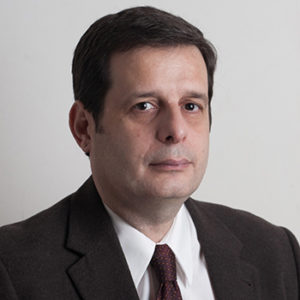 Javier Hourcade Bellocq is Argentinean and lives in Buenos Aires. He has a master’s degree in institutional communication, and is a journalist. He started working on HIV in 1988 when he was diagnosed HIV positive. Since then, he worked in national CBOs and NGOs in Argentina, as well as regional and global networks of People living with HIV. He is the founder and editor of the Key Correspondent Team (KC), a civil society community journalism initiative. During the last decade, the KC team published 3500 with information from and out of Latina American and the Caribbean on HIV, Sexual and Reproductive Rights, and Health, TBC, and Hepatitis to keep people informed, empowered and influence decision-makers. Javier is also the senior advisor on sustainability for the International Civil Society Support (ICSS) and coordinates the Civil Society Sustainability Network. He is a former member of the UNAIDS Program Coordinating Board, Board Member of the Global Fund to fights AIDS, TB and Malaria (GFATM), and Chair of the Global Network of People Living with HIV (GNP+), among other regional and global governance roles. Currently, he is a Board Member of the International Consortium of AIDS Service Organizations (ICASO), Civil Society Representative in GFATM LAC Board Delegation, and a member of the board of GNP+.
Javier Hourcade Bellocq is Argentinean and lives in Buenos Aires. He has a master’s degree in institutional communication, and is a journalist. He started working on HIV in 1988 when he was diagnosed HIV positive. Since then, he worked in national CBOs and NGOs in Argentina, as well as regional and global networks of People living with HIV. He is the founder and editor of the Key Correspondent Team (KC), a civil society community journalism initiative. During the last decade, the KC team published 3500 with information from and out of Latina American and the Caribbean on HIV, Sexual and Reproductive Rights, and Health, TBC, and Hepatitis to keep people informed, empowered and influence decision-makers. Javier is also the senior advisor on sustainability for the International Civil Society Support (ICSS) and coordinates the Civil Society Sustainability Network. He is a former member of the UNAIDS Program Coordinating Board, Board Member of the Global Fund to fights AIDS, TB and Malaria (GFATM), and Chair of the Global Network of People Living with HIV (GNP+), among other regional and global governance roles. Currently, he is a Board Member of the International Consortium of AIDS Service Organizations (ICASO), Civil Society Representative in GFATM LAC Board Delegation, and a member of the board of GNP+.
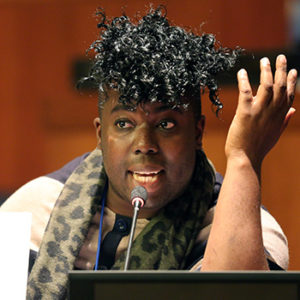 Dumiso is a feminist human rights defender and founder Success Capital NGO, an LGBTIQ+ youth-led, managed and serving grassroots organization that helps its constituency to navigate from survival to success. Through Success Capital and other groups/non-profits, Dumi works to strengthen and safeguard LGBTIQ+ youth lived experiences in public health (HIV, SRHR), governance (CEDAW, ACHPR, SADC Gender protocol) and policy making (local traditional mechanisms, Ministry Technical Working Groups, HLPF, UNGA, ICPD, Beijing +25). Dumi also serves the International Youth Alliance for Family Planning and the CIVICUS Diversity & Inclusion Group for Networking and Action.
Dumiso is a feminist human rights defender and founder Success Capital NGO, an LGBTIQ+ youth-led, managed and serving grassroots organization that helps its constituency to navigate from survival to success. Through Success Capital and other groups/non-profits, Dumi works to strengthen and safeguard LGBTIQ+ youth lived experiences in public health (HIV, SRHR), governance (CEDAW, ACHPR, SADC Gender protocol) and policy making (local traditional mechanisms, Ministry Technical Working Groups, HLPF, UNGA, ICPD, Beijing +25). Dumi also serves the International Youth Alliance for Family Planning and the CIVICUS Diversity & Inclusion Group for Networking and Action.
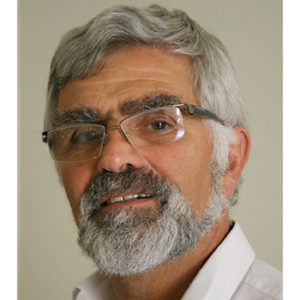 Kurt Frieder is President of Fundacion Huesped, an Argentinean NGO with regional reach throughout Latin America since 1989. Fundacion Huesped works on HIV/AIDS and sexual and reproductive health, and advocacy for an equitable, healthy and sustainable society with full access to health services and human rights. Previously, Kurt served for 20 years as the Executive Director of FH, coordinated the Health Commission of the Social Sector Forum, and was the General Secretary of the Argentinean Aids Society. He was a member of the Country Coordination Mechanism of the Global Fund during both projects granted to Argentina. During 2018, Frieder coordinated the C20/G20 Global Health Working Group and continued that activity as the international coordinator in Japan 2019. He also represents FH on the Board of the Argentinean Network of the UN Global Compact. Until 2018, he was the President of the Argentine Network for International Cooperation, a national federation of over 150 CSOs working in the local development of the social sector. Originally born in Rumania, Frieder is married with four children. He is fluent in Spanish, English and German with some knowledge of French. He has a degree in business administration and a Master of Public Health, University of Buenos Aires.
Kurt Frieder is President of Fundacion Huesped, an Argentinean NGO with regional reach throughout Latin America since 1989. Fundacion Huesped works on HIV/AIDS and sexual and reproductive health, and advocacy for an equitable, healthy and sustainable society with full access to health services and human rights. Previously, Kurt served for 20 years as the Executive Director of FH, coordinated the Health Commission of the Social Sector Forum, and was the General Secretary of the Argentinean Aids Society. He was a member of the Country Coordination Mechanism of the Global Fund during both projects granted to Argentina. During 2018, Frieder coordinated the C20/G20 Global Health Working Group and continued that activity as the international coordinator in Japan 2019. He also represents FH on the Board of the Argentinean Network of the UN Global Compact. Until 2018, he was the President of the Argentine Network for International Cooperation, a national federation of over 150 CSOs working in the local development of the social sector. Originally born in Rumania, Frieder is married with four children. He is fluent in Spanish, English and German with some knowledge of French. He has a degree in business administration and a Master of Public Health, University of Buenos Aires.
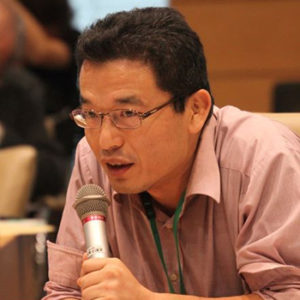 Masaki Inaba worked in global health policy for long time, and has been leading Japanese civil society movement for global health in diverse advocacy opportunities and thematic issues such as AIDS, TB, Malaria and Universal Health Coverage (UHC). Most recently, he served as the Japan Coordinator of the C20 Global Health Working Group in 2019 alongside the C20 Sherpa, preparing for the G20. Masaki works closely with Asia/Pacific and African civil society working on global health and three infectious diseases (AIDS, TB and Malaria), as well as UHC, through advocating for G7, G20 and Tokyo International Conference on African Development (TICAD). He has experiences of research on UHC and health systems strengthening, including the Joint NGO Research Group on UHC with several Japanese civil society organizations working on primary health care in 2014, including the Asian Health Institute (AHN), Asian Arsenic Network (AAN). He previously worked on civil society and community activities in Japan, as an activist for the lesbian and gay rights movement, and as coordinator of a medical team in urban poor communities in Yokohama City.
Masaki Inaba worked in global health policy for long time, and has been leading Japanese civil society movement for global health in diverse advocacy opportunities and thematic issues such as AIDS, TB, Malaria and Universal Health Coverage (UHC). Most recently, he served as the Japan Coordinator of the C20 Global Health Working Group in 2019 alongside the C20 Sherpa, preparing for the G20. Masaki works closely with Asia/Pacific and African civil society working on global health and three infectious diseases (AIDS, TB and Malaria), as well as UHC, through advocating for G7, G20 and Tokyo International Conference on African Development (TICAD). He has experiences of research on UHC and health systems strengthening, including the Joint NGO Research Group on UHC with several Japanese civil society organizations working on primary health care in 2014, including the Asian Health Institute (AHN), Asian Arsenic Network (AAN). He previously worked on civil society and community activities in Japan, as an activist for the lesbian and gay rights movement, and as coordinator of a medical team in urban poor communities in Yokohama City.
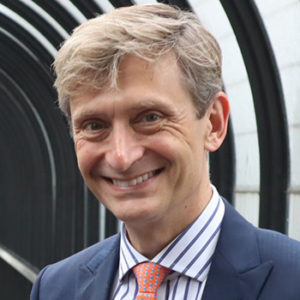 Cary James began his civil society career in the grassroots HIV movement in London. He went on to become Head of Health Improvement Programmes at the Terrence Higgins Trust (THT), one of Europe’s largest HIV and sexual health organisations. There he led HIV Prevention England – the official government funded national HIV prevention programme. During this time, England saw a 37% decrease in new HIV diagnoses and a reduction in new HIV infections – the first decrease in UK history and a turning point in the epidemic. He is the former chair of European [Hepatitis/HIV] Testing Week and is currently an advisory board member of INTEGRATE – a programme to integrate early diagnosis and linkage to prevention and care of viral hepatitis, HIV, TB and STIs in Europe; as well as other expert groups and strategic partnerships. He is also a faculty member of the European AIDS Clinical Society’s online HIV Clinical Management course, responsible for the module on key populations. Before joining the World Hepatitis Alliance as CEO, Cary was active in the fields of non-communicable diseases, patient safety, and health system strengthening in support of the International Society of Thrombosis and Haemostasis. He holds a Masters degree in Health and Social Marketing.
Cary James began his civil society career in the grassroots HIV movement in London. He went on to become Head of Health Improvement Programmes at the Terrence Higgins Trust (THT), one of Europe’s largest HIV and sexual health organisations. There he led HIV Prevention England – the official government funded national HIV prevention programme. During this time, England saw a 37% decrease in new HIV diagnoses and a reduction in new HIV infections – the first decrease in UK history and a turning point in the epidemic. He is the former chair of European [Hepatitis/HIV] Testing Week and is currently an advisory board member of INTEGRATE – a programme to integrate early diagnosis and linkage to prevention and care of viral hepatitis, HIV, TB and STIs in Europe; as well as other expert groups and strategic partnerships. He is also a faculty member of the European AIDS Clinical Society’s online HIV Clinical Management course, responsible for the module on key populations. Before joining the World Hepatitis Alliance as CEO, Cary was active in the fields of non-communicable diseases, patient safety, and health system strengthening in support of the International Society of Thrombosis and Haemostasis. He holds a Masters degree in Health and Social Marketing.
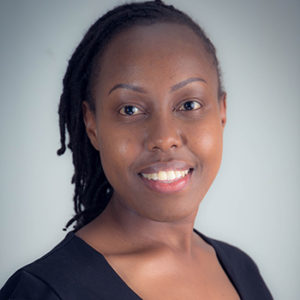 Evalin Karijo is a young, dynamic leader and a Public Health Specialist with eight years’ experience in designing and implementing health projects focusing on women, adolescents and youth. She has led multifaceted health projects supported by the European Union, Comic Relief, the German Federal Enterprise for International Cooperation (GIZ), UNFPA and the Bill & Melinda Gates Foundation. She is currently the Project Director of Y-ACT, Youth in Action, at Amref Health Africa – a national youth-led initiative that promotes Meaningful Youth Engagement in policy and decision-making processes in Kenya, with a focus on Gender Equality and Sexual and Reproductive Health & Rights (SRHR). She served as the Chairperson of the Africa Health Agenda International Conference Youth Pre-conference 2019. During her tenure, over 400 youth from 23 countries launched the Youth4UHC movement, the first virtual Pan-African movement of youth aimed at advancing meaningful youth engagement in UHC policy design and implementation in the global south. Ms. Karijo holds a masters degree in International Public Health from the University of Liverpool and a Global Executive MBA (Health Leadership & Management) from USIU-Africa. She has received various recognitions including Siasa Place and Management Africa, for her leadership role in the development sector.
Evalin Karijo is a young, dynamic leader and a Public Health Specialist with eight years’ experience in designing and implementing health projects focusing on women, adolescents and youth. She has led multifaceted health projects supported by the European Union, Comic Relief, the German Federal Enterprise for International Cooperation (GIZ), UNFPA and the Bill & Melinda Gates Foundation. She is currently the Project Director of Y-ACT, Youth in Action, at Amref Health Africa – a national youth-led initiative that promotes Meaningful Youth Engagement in policy and decision-making processes in Kenya, with a focus on Gender Equality and Sexual and Reproductive Health & Rights (SRHR). She served as the Chairperson of the Africa Health Agenda International Conference Youth Pre-conference 2019. During her tenure, over 400 youth from 23 countries launched the Youth4UHC movement, the first virtual Pan-African movement of youth aimed at advancing meaningful youth engagement in UHC policy design and implementation in the global south. Ms. Karijo holds a masters degree in International Public Health from the University of Liverpool and a Global Executive MBA (Health Leadership & Management) from USIU-Africa. She has received various recognitions including Siasa Place and Management Africa, for her leadership role in the development sector.
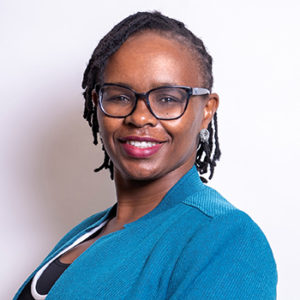
Dr. Esther Njoroge-Muriithi is the Vice President and Regional Director for Africa at Smile Train, an international organization that empowers local medical professionals with training, funding, and resources to provide free cleft surgery and comprehensive cleft care to children globally. Smile Train advances a sustainable solution and scalable global health model for cleft treatment, drastically improving children’s lives, including their ability to eat, breathe, speak, and ultimately thrive. Dr. Njoroge-Muriithi joined Smile Train in 2008 as a volunteer. During her tenure the programs have grown in number and scale, spanning 38 countries, partnering with 254+ hospitals and reaching 113,000+ patients born with cleft lip and palate. She has represented Smile Train on several civil society platforms including G4 Alliance, CORE Group and UNGA73 side events advocating for UHC. A Medical doctor, she holds a Master of Public Health focusing on health systems management. She is also a qualified accountant (ACCA). She is the recipient of 2016 Business Daily Africa’s Top 40 Under 40 Women award. A Rotarian, she serves on the board of Rotary Club of Nairobi-Langata, a wife and mother of three.
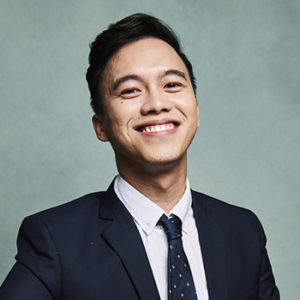
Jose Maria ‘Lloyd’ Nunag is a passionate and dedicated young Filipino activist, community organizer, researcher, and service provider with a special interest in Universal Health Coverage (UHC) and sexual and reproductive health and rights (SRHR). Lloyd is a queer feminist with a growing skillset and background working with numerous non-profit and social service organizations. He is an experienced Board of Director, Registered Nurse, program coordinator, global health policy lobbyist and community organizer. Lloyd has made a difference with his participation in different national and international spaces starting in the Philippines with his role as part of Youth Coalition. He is also the first-ever youth steering committee member of Asia Pacific Alliance for SRHR, and a member of the Alliance for Gender Equality and UHC.
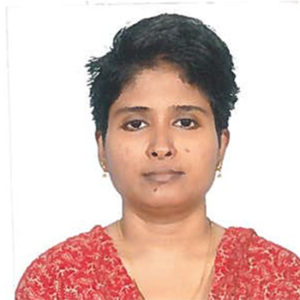 Smitha Sadasivan is a self advocate for cross disability rights in India, working for the advancement of the human rights of persons with all disabilities at the national level for the past 16 years. She focuses on advocating towards the formulation of rights based policies and programs for persons with disabilities by the government and implementing them, sensitizing multi-stakeholders on the rights of persons with disabilities, facilitating free legal aid to persons with disabilities, conducting access audits and partnering with governments to evolve accessible and inclusive solutions for all. Apart from being the accessibility consultant for the Election Commission of India, she carries out different roles including that of the regional trainer for South Asia Women’s institute on Leadership & Disability (WILD) program, MIUSA, USA and member of the National Committee for the Rights of Persons with Disabilities (NCRPD) facilitated by NCPEDP, New Delhi. Smitha, an M Phil in Psychology, is an experiential expert living with Multiple Sclerosis for past 20 years, serving as an integral part of Multiple Sclerosis Society of India, Chennai. She also works with a project on independent living of persons with disabilities (Begin to Live Interdependently with Support Systems – BLISS) at Vidya Sagar, Chennai and with the policy and advocacy committee of Organisation for Rare Diseases India (ORDI).
Smitha Sadasivan is a self advocate for cross disability rights in India, working for the advancement of the human rights of persons with all disabilities at the national level for the past 16 years. She focuses on advocating towards the formulation of rights based policies and programs for persons with disabilities by the government and implementing them, sensitizing multi-stakeholders on the rights of persons with disabilities, facilitating free legal aid to persons with disabilities, conducting access audits and partnering with governments to evolve accessible and inclusive solutions for all. Apart from being the accessibility consultant for the Election Commission of India, she carries out different roles including that of the regional trainer for South Asia Women’s institute on Leadership & Disability (WILD) program, MIUSA, USA and member of the National Committee for the Rights of Persons with Disabilities (NCRPD) facilitated by NCPEDP, New Delhi. Smitha, an M Phil in Psychology, is an experiential expert living with Multiple Sclerosis for past 20 years, serving as an integral part of Multiple Sclerosis Society of India, Chennai. She also works with a project on independent living of persons with disabilities (Begin to Live Interdependently with Support Systems – BLISS) at Vidya Sagar, Chennai and with the policy and advocacy committee of Organisation for Rare Diseases India (ORDI).
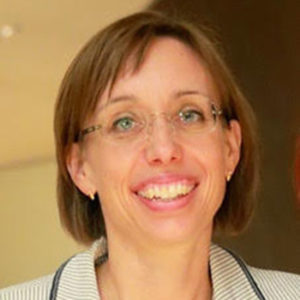
Dr. JuliaTainijoki is the Medical and Advocacy Advisor of the World Medical Association, the global federation of National Medical Associations representing the millions of physicians worldwide. WMA acts on behalf of patients and physicians to achieve the highest possible standards of medical care, ethics, education and health-related human rights for all people. Dr. Tainijoki manages a variety of strategic projects at WMA ranging from infectious and non-communicable diseases to strengthening health systems, patient safety, access to quality-assured medicines and the social determinants of health. She serves as the WMA representative to the UN organizations, including WHO and other international institutions in Geneva, Switzerland. For over 10 years she also headed the secretariat of the World Health Professions Alliance (WHPA) representing more than 26 million healthcare professionals globally, was member of several international expert committee at WHO and other organisations, management board member of the Global Social Observatory and editorial board member of Southern Medical Journal. She is a family physician, trained in Germany, UK and Switzerland with a Master’s in International Health Economy and Policy from the University of Bocconi in Milan, Italy.
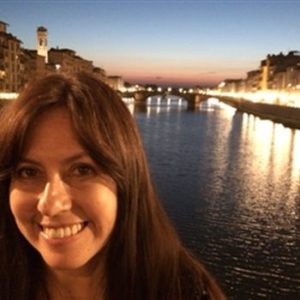 Anamaria Bejar is the Director of Advocacy at the International Planned Parenthood Federation. Previously she was Associate Director for Asia, Eastern Europe, Latin America and the Caribbean at the International HIV AIDS Alliance Secretariat and Save the Children UK Country Director in Cuba. Anamaria started her career in Cusco Peru, where she worked at the Peruvian Ministry of Health and local NGOs on community programs for indigenous women and children. She is a social anthropologist with an MSc in Health Policy Planning and Financing obtained at the London School of Economics and Political Sciences and the London School of Hygiene and Tropical Medicine. Anamaria serves at the Technical Review Panel of the Global Fund against AIDS, TB, and malaria as human rights and gender expert.
Anamaria Bejar is the Director of Advocacy at the International Planned Parenthood Federation. Previously she was Associate Director for Asia, Eastern Europe, Latin America and the Caribbean at the International HIV AIDS Alliance Secretariat and Save the Children UK Country Director in Cuba. Anamaria started her career in Cusco Peru, where she worked at the Peruvian Ministry of Health and local NGOs on community programs for indigenous women and children. She is a social anthropologist with an MSc in Health Policy Planning and Financing obtained at the London School of Economics and Political Sciences and the London School of Hygiene and Tropical Medicine. Anamaria serves at the Technical Review Panel of the Global Fund against AIDS, TB, and malaria as human rights and gender expert.
 Katie Husselby is Coordinator of the Action for Global Health Network (AfGH), a membership organization representing more than 60 UK-based global health organizations. In this role, she is responsible for engaging with the UK government and global health stakeholders, implementing AfGH’s advocacy strategy, coordinating member activities, and fundraising. Katie also sits on the UHC2030 CSEM Advisory Group, representing Action for Global Health. In previous roles, Katie has worked at the Coalition for Global Prosperity, where she focused on sustaining parliamentary support for DFID’s work and international development more broadly, as well as working with several grassroots organizations in Uganda, including the Uganda Landmine Survivors Association. She studied English Language and Literature at the University of Oxford.
Katie Husselby is Coordinator of the Action for Global Health Network (AfGH), a membership organization representing more than 60 UK-based global health organizations. In this role, she is responsible for engaging with the UK government and global health stakeholders, implementing AfGH’s advocacy strategy, coordinating member activities, and fundraising. Katie also sits on the UHC2030 CSEM Advisory Group, representing Action for Global Health. In previous roles, Katie has worked at the Coalition for Global Prosperity, where she focused on sustaining parliamentary support for DFID’s work and international development more broadly, as well as working with several grassroots organizations in Uganda, including the Uganda Landmine Survivors Association. She studied English Language and Literature at the University of Oxford.
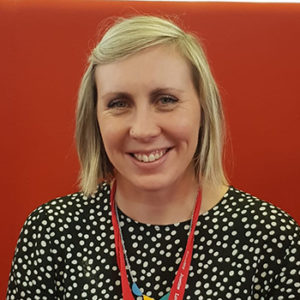 Laura Adams is a health program specialist with over 12-years of experience in program development, strategic oversight, policy, advocacy and monitoring and evaluation within the global health field. Laura is currently the Global Health Programme Advisor at Christian Aid, providing health technical support and advice to eight health programs across Africa and Asia. Thematically Laura has expertize in Maternal and Child Health, Sexual and Reproductive Health Rights, adolescent health, HIV, social norms, health governance, resilience, nutrition and Sexual and Gender-Based Violence, and has a strong policy focus on Universal Health Coverage. Before this, Laura worked in Sierra Leone for three years on maternal and child health and gender-based violence programs. She has a Masters in Conflict, Security and Development from Kings College London. Laura is committed to the global achievement of Universal Health Coverage, passionately believing that everyone deserves to understand and access their right to health and thus thrive in a resilient and healthy society.
Laura Adams is a health program specialist with over 12-years of experience in program development, strategic oversight, policy, advocacy and monitoring and evaluation within the global health field. Laura is currently the Global Health Programme Advisor at Christian Aid, providing health technical support and advice to eight health programs across Africa and Asia. Thematically Laura has expertize in Maternal and Child Health, Sexual and Reproductive Health Rights, adolescent health, HIV, social norms, health governance, resilience, nutrition and Sexual and Gender-Based Violence, and has a strong policy focus on Universal Health Coverage. Before this, Laura worked in Sierra Leone for three years on maternal and child health and gender-based violence programs. She has a Masters in Conflict, Security and Development from Kings College London. Laura is committed to the global achievement of Universal Health Coverage, passionately believing that everyone deserves to understand and access their right to health and thus thrive in a resilient and healthy society.
You can read more about the other members of the Advisory Group here.

